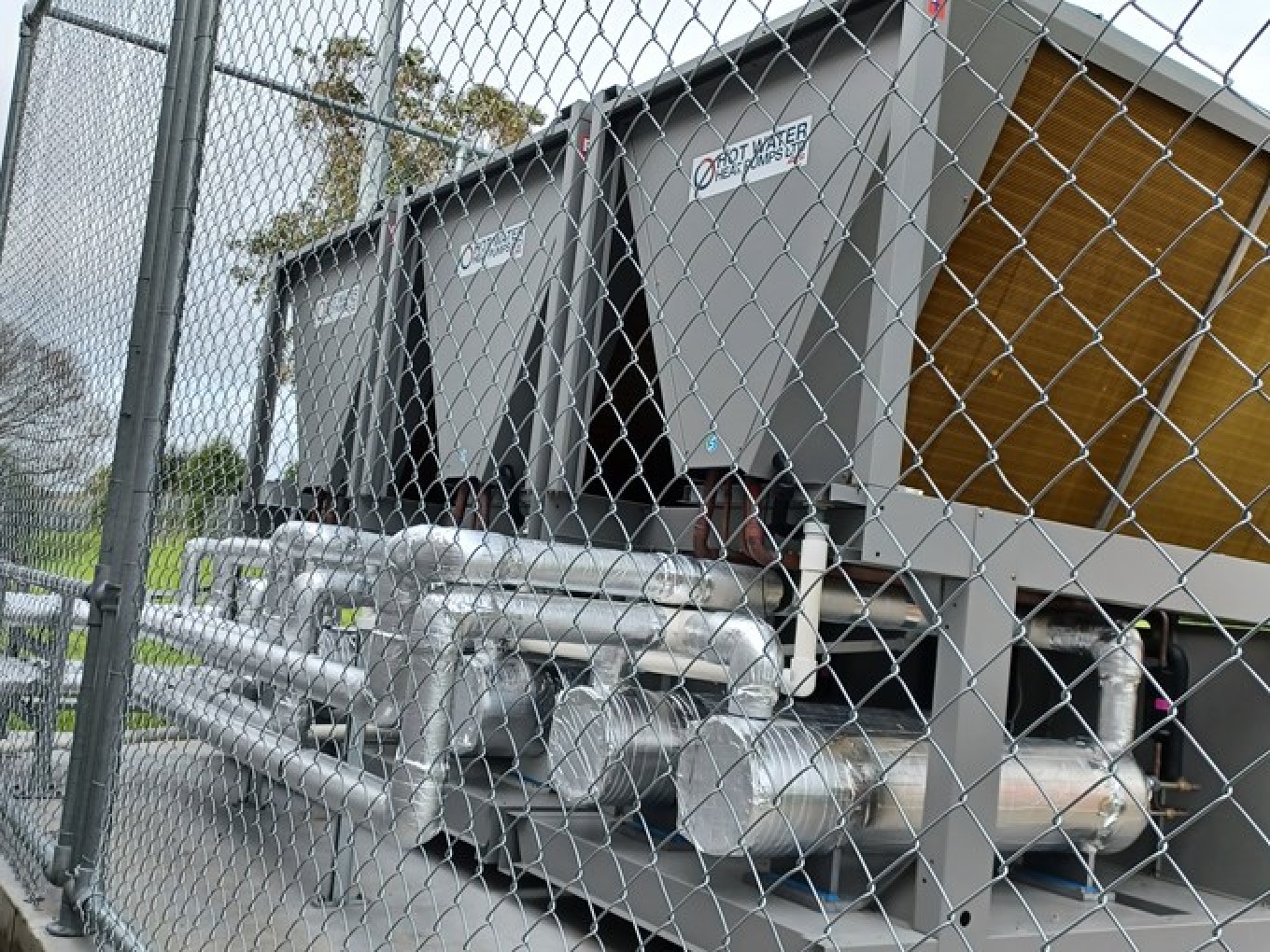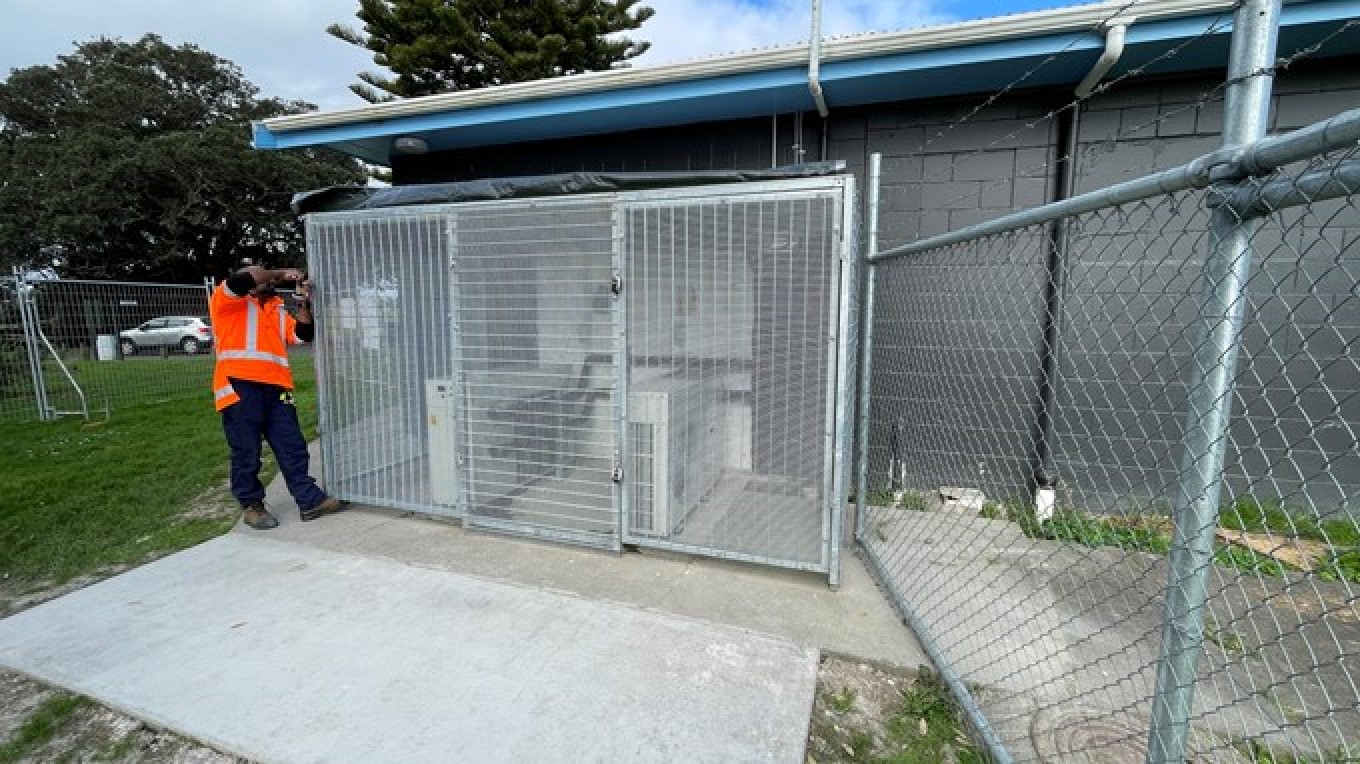Auckland Council is succeeding in reducing carbon emissions and promoting sustainability across its $11 billion portfolio of assets.
Parks and community facilities make up 75 per cent of Auckland Council's carbon emissions.
As the kaitiaki (guardian) of those facilities, we are committed to achieving environmental and social sustainability through meaningful climate action to reach our climate goal.
Winter Gardens: a beacon of sustainable heating
Heating is a major contributor to a facility's carbon footprint. To address this, Auckland Council has introduced a sustainability initiative with the installation of a fin pellet boiler at the Winter Gardens in Auckland Domain. This energy efficient boiler replaces the previous gas heating system, reducing CO2 emissions by 100 tonnes annually and cutting operational costs by $25,000 annually.
The wood pellets, made in New Zealand from sawdust that would otherwise go to landfill, support a circular economy. The ash produced, rich in phosphorus and nitrogen, is used as fertilizer for the gardens, further enhancing their sustainability.
Harnessing solar power at Albany Stadium Pool
Another exciting sustainability project is Project Gigawatt, a key part of Auckland Council's climate strategy, focuses on integrating solar PV (photovoltaic electricity) in parks and community facilities. At Albany Stadium Pool, a 206-kilowatt peak solar system, with 376 solar panels covering 982 square meters, generates 286,843 kilowatt-hours of solar energy annually, which is equivalent to powering 36 homes.
This system reduces the pool’s carbon footprint by 35 tonnes per year, equivalent to planting 380 trees, and saves approximately 20 per cent on utility costs, demonstrating the council’s commitment to renewable energy.
Moana-Nui-a-Kiwa Leisure Centre: phasing out gas to make a splash
Moana-Nui-a-Kiwa Leisure Centre in Māngere has transitioned from gas boilers to electric heat pumps, significantly reducing its carbon emissions. This change saves 1.4 million kilowatt-hours annually, cutting the carbon footprint by 307 tonnes per year and reducing utility costs by $110,000. The new system maintains optimal pool temperatures while providing a more sustainable heating solution, showcasing Auckland Council’s dedication to phasing out fossil fuels from its facilities.

Low-carbon water heating at Laurie Gibbons
The Laurie Gibbons Heat Pump hot water system is another example of sustainable upgrades. This system uses approximately one-third less energy than conventional hot water systems, providing three units of heat for every unit of electricity consumed.
On a busy game day, the facility hosts four games and manages to provide hot showers for 120 people, demonstrating the effectiveness of this sustainable solution. By choosing a low-carbon option for water heating, the council significantly reduces greenhouse gas emissions, supporting its broader climate goals.

Looking Ahead
Auckland Council’s comprehensive approach to sustainability is driving tangible reductions in carbon emissions. Emissions were down 11 per cent in FY20/21 from their peak in FY17/18, with further reductions expected.
The council remains committed to its goal of net zero emissions by 2050, continuing to implement innovative solutions and encouraging community involvement in climate action.
Join us as we work together to stand strong for a sustainable future.
To find out more about what you can do to reduce your climate footprint, visit Live Lightly.
The four sites mentioned above only scratch the surface of sustainable initiatives in our parks and community facilities. Seven sites have recently been upgraded to solar panelling, with three more in progress, and three additional sites have had heat pumps installed, replacing gas boilers.
Sites powered by solar energy:
- Lloyd Elsmore pool (in progress)
- Freemans Bay Community Centre solar PV (in progress)
- Orere War Memorial Hall solar PV (in progress)
- Blockhouse Bay Community Centre solar PV
- Highland Park Library solar PV
- Shakespear Regional Park Shed solar PV
- Glendowie Community Centre PV
- Anawhata and Pae o te Rangi Farms solar water pumps
- Manurewa Pool solar PV system
- Whatipu Lodge and Campground off grid solar PV and water turbine/battery
Hot water heat pump projects recently completed:
- Manurewa War Memorial Park Heat Pump Water Heater replacing gas
- Takapuna Pools spa pool HWHP
- Papakura Library LED lighting upgrade

